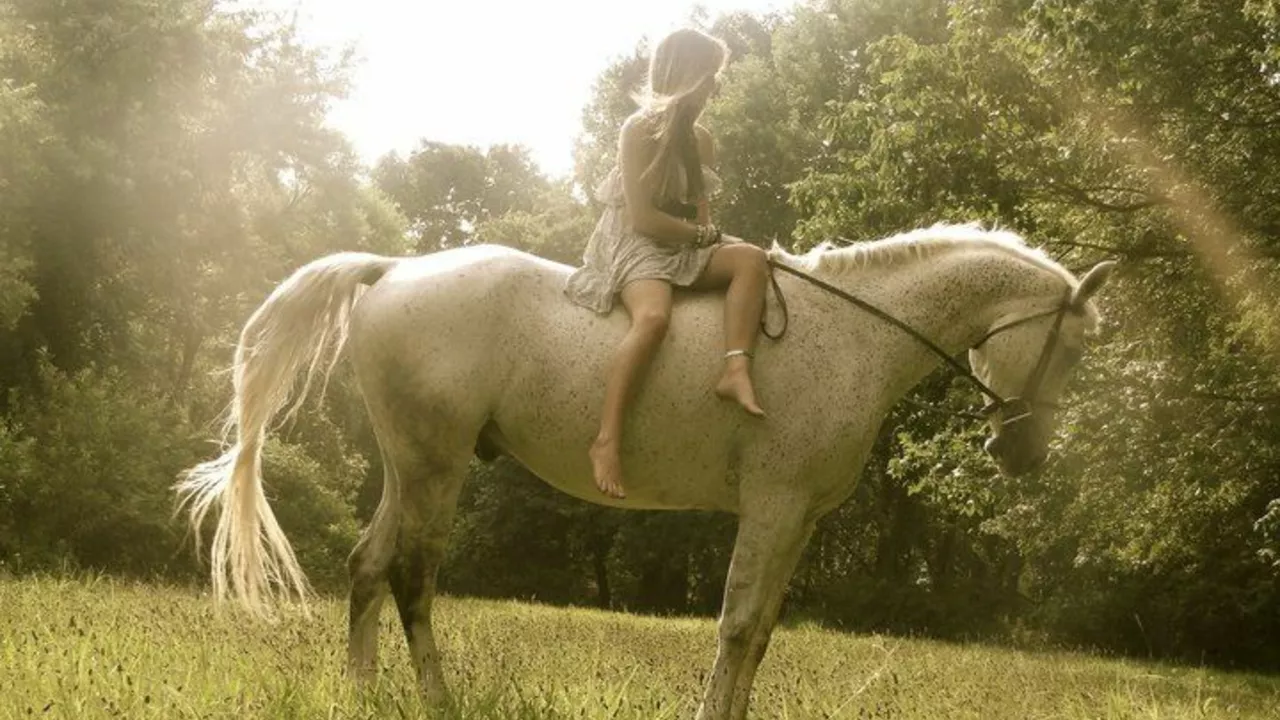The Dawn of Horse Domestication
Let me take you back to the beginning, to the dawn of horse domestication. The first evidence of humans riding horses dates back to around 3500 BC. It's fascinating to think that our ancestors were able to tame these powerful creatures and utilize them for their own purposes. The exact reasons why they first decided to mount these majestic creatures remain a mystery, but it's likely that necessity was the mother of invention.
Imagine, if you will, the vast, open plains, teeming with wild horses. Our ancestors would have observed these creatures and realized their potential. Initially, horses were likely used for meat and hide. However, over time, humans began to see the advantages of using them for transportation and work.
The Role of Horses in Warfare
Fast forward a few centuries, and we find that horses played a significant role in warfare. The horse's speed, power, and endurance made it a formidable asset in battle. Horses allowed warriors to move quickly and strike with force, changing the dynamics of warfare entirely.
Imagine a group of horse-mounted warriors charging towards an enemy. The sight alone would have been enough to strike fear into the hearts of their foes. Horses were not just a mode of transportation; they were a weapon, a symbol of status, and a companion in battle.
Beyond Warfare: Horses in Agriculture
But the role of horses extended far beyond the battlefield. As societies evolved and agriculture developed, the horse became an indispensable tool for farming. They were used for plowing fields, hauling goods, and transporting people. The horse truly was the engine of the ancient world.
The strength and endurance of a horse were unmatched by any other domesticated animal at the time. The ability to plow more land and transport more goods faster led to significant advancements in agriculture and trade.
The Horse as a Status Symbol
Horses were not just tools or weapons; they also served as status symbols. Owning a horse, especially a well-bred one, signified wealth and power. The more horses one owned, the more affluent and influential they were considered.
Even today, this perception persists. Horse ownership is often associated with wealth and prestige. People invest in racehorses or show horses as a way of displaying their status and wealth.
The Evolution of Horse Riding
Over the centuries, horse riding evolved from a necessity to a leisure activity. As technology advanced, the need for horses in transportation, agriculture, and warfare diminished. However, the bond between humans and horses remained strong.
Today, horse riding is considered a sport, a hobby, and a form of therapy. The relationship between humans and horses is more about companionship and mutual respect than utility.
The Horse in Modern Sport
In the modern world, horse riding has become an elite sport. From show jumping to dressage, polo to horse racing, these sports require skill, precision, and a deep understanding of the horse.
These sports not only showcase the elegance and power of the horse, but they also highlight the incredible bond between horse and rider. It's a testament to the enduring relationship between humans and horses that began thousands of years ago.
Therapeutic Riding
Did you know that horse riding has therapeutic effects? Known as equine-assisted therapy, this form of treatment has been shown to improve physical, emotional, and mental health. The movement of the horse can improve balance, coordination, and strength, while the bond between horse and rider can boost confidence and reduce stress.
Whether it's a child with special needs, a veteran dealing with post-traumatic stress disorder, or an elderly person looking to stay active, horse riding can have profound benefits. The incredible bond between humans and horses continues to heal, inspire, and empower.
The Future of Horse Riding
So, what does the future hold for horse riding? While it's hard to predict, it's safe to say that our bond with horses will continue to evolve. As we continue to appreciate and respect these incredible creatures, new forms of horse riding and equine-assisted therapies are likely to emerge.
From the dawn of horse domestication to the modern sport and therapy, the journey of horse riding is a testament to the enduring bond between humans and horses. It's a journey of mutual respect, shared experiences, and the pursuit of progress.
